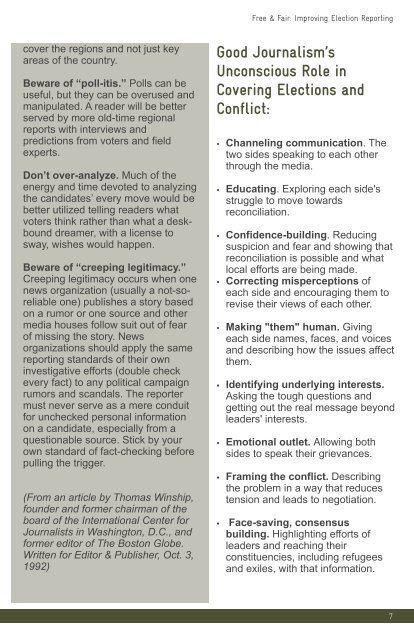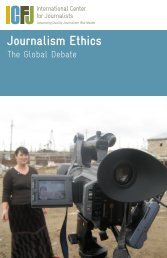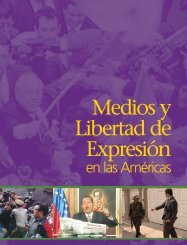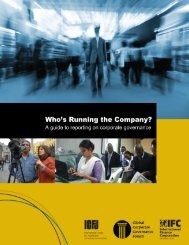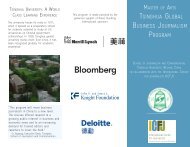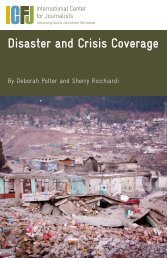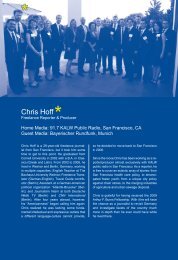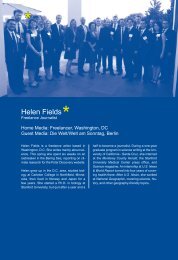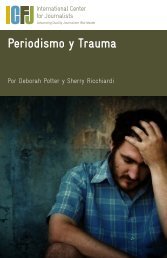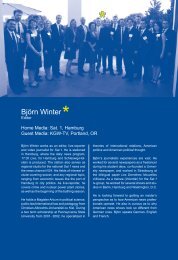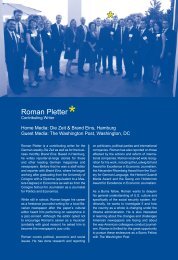Download PDF - International Center for Journalists
Download PDF - International Center for Journalists
Download PDF - International Center for Journalists
You also want an ePaper? Increase the reach of your titles
YUMPU automatically turns print PDFs into web optimized ePapers that Google loves.
Free & Fair: Improving Election Reporting<br />
cover the regions and not just key<br />
areas of the country.<br />
Beware of “poll-itis.” Polls can be<br />
useful, but they can be overused and<br />
manipulated. A reader will be better<br />
served by more old-time regional<br />
reports with interviews and<br />
predictions from voters and field<br />
experts.<br />
Don’t over-analyze. Much of the<br />
energy and time devoted to analyzing<br />
the candidates’ every move would be<br />
better utilized telling readers what<br />
voters think rather than what a deskbound<br />
dreamer, with a license to<br />
sway, wishes would happen.<br />
Beware of “creeping legitimacy.”<br />
Creeping legitimacy occurs when one<br />
news organization (usually a not-soreliable<br />
one) publishes a story based<br />
on a rumor or one source and other<br />
media houses follow suit out of fear<br />
of missing the story. News<br />
organizations should apply the same<br />
reporting standards of their own<br />
investigative ef<strong>for</strong>ts (double check<br />
every fact) to any political campaign<br />
rumors and scandals. The reporter<br />
must never serve as a mere conduit<br />
<strong>for</strong> unchecked personal in<strong>for</strong>mation<br />
on a candidate, especially from a<br />
questionable source. Stick by your<br />
own standard of fact-checking be<strong>for</strong>e<br />
pulling the trigger.<br />
(From an article by Thomas Winship,<br />
founder and <strong>for</strong>mer chairman of the<br />
board of the <strong>International</strong> <strong>Center</strong> <strong>for</strong><br />
<strong>Journalists</strong> in Washington, D.C., and<br />
<strong>for</strong>mer editor of The Boston Globe.<br />
Written <strong>for</strong> Editor & Publisher, Oct. 3,<br />
1992)<br />
Good Journalism’s<br />
Unconscious Role in<br />
Covering Elections and<br />
Conflict:<br />
• Channeling communication. The<br />
two sides speaking to each other<br />
through the media.<br />
• Educating. Exploring each side's<br />
struggle to move towards<br />
reconciliation.<br />
• Confidence-building. Reducing<br />
suspicion and fear and showing that<br />
reconciliation is possible and what<br />
local ef<strong>for</strong>ts are being made.<br />
• Correcting misperceptions of<br />
each side and encouraging them to<br />
revise their views of each other.<br />
• Making "them" human. Giving<br />
each side names, faces, and voices<br />
and describing how the issues affect<br />
them.<br />
• Identifying underlying interests.<br />
Asking the tough questions and<br />
getting out the real message beyond<br />
leaders' interests.<br />
• Emotional outlet. Allowing both<br />
sides to speak their grievances.<br />
• Framing the conflict. Describing<br />
the problem in a way that reduces<br />
tension and leads to negotiation.<br />
• Face-saving, consensus<br />
building. Highlighting ef<strong>for</strong>ts of<br />
leaders and reaching their<br />
constituencies, including refugees<br />
and exiles, with that in<strong>for</strong>mation.<br />
7


